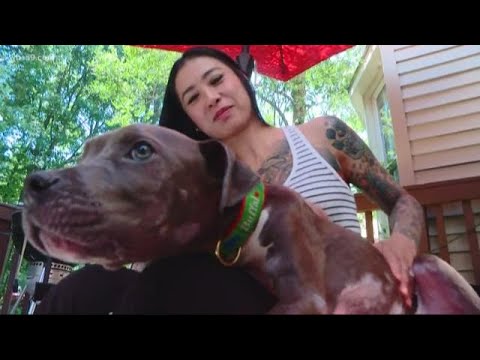In This Chapter
- Knowing whether you have what it takes to own a Poodle
- Thinking about the time and money you need to own a Poodle
Asking Yourself a Few Important Questions Upfront
Does a Poodle fit in with your lifestyle?
Remember
Poodles are people dogs. They need some quality time with their humans. If both you and your spouse work and the kids are always off playing soccer or attending play rehearsals, when does the dog get some attention? Certainly you can leave a Poodle alone for part of the day, but too much time alone, and he’s going to get bored, and maybe destructive.
Do you have room for a Poodle?
How will a Poodle respond to your children and other pets?
Warning!
Never, ever leave babies unattended with any dog. Babies make high-pitched, squeaky noises that are similar to those of prey animals. They also make sudden, jerky movements — again, like prey animals. These noises and movements can trigger the prey drive in a dog and lead to disaster.
Warning!
If you have smaller furry pets like guinea pigs or rabbits, keep them away from your Poodle. Although some Poodles may get along just fine with the family guinea pig, your Poodle may consider it lunch.
Considering the Costs of Poodle Ownership
How much is that doggy? Money matters
Remember
It’s not entirely true that the best things in life are free. There’s nothing better than having a dog in the family, but expect expenses:
– Consider the price of a dog, which can be anywhere from $1,000 to $2,000. Think about the everyday costs of food, toys, beds, crates, collars, and leads. (See Chapter Choosing the Best Poodle for You for details on the gear you need for your Poodle.)
– You need to budget for annual visits to the veterinarian, vaccinations, assorted medicines, and possibly even surgery. If you’re not showing in the breed ring, you’ll want to spay or neuter, and even the healthiest dog may have an accident or swallow something he shouldn’t. An annual tooth cleaning is a good idea, too. (See Part IV for more about health issues.)
– Grooming supplies, or professional grooming, comes next for Poodles. Poodles are labor-intensive when it comes to coat care, even though they don’t shed. Many Poodle owners have a standing appointment with a groomer. The cost per session is anywhere from $50 to $150 for a Standard, and $35 to $50 for a Toy or Miniature. These prices are for pet clips. Show clips, if a groomer even does a show clip, are much more. Most groomers also charge extra if the coat is matted. Using $50 as an average monthly grooming trip, that’s $600 per year for every year of your dog’s life. (I cover grooming in more detail in Chapter Providing Your Poodle with a Nutritious Diet.)
The clock’s ticking: Time issues
Remember
Before you add a Poodle to your family, consider the following time factors:
– You or someone else in the family need to spend time housetraining your Poodle puppy, and that may include being home at lunchtime or cutting an evening out short. See Chapter Keeping Your Poodle Clean and Attractive for more about housetraining.
– Plan to spend time teaching your Poodle basic manners, as I explain in Chapter Housetraining Made Easy. You may also want to go further and train for competitive events (which I cover in Chapter Showing Off and Enjoying Your Poodle’s Talents).
– You need to devote time to weekly grooming in between the full grooming, whether done at home or by a professional. A Poodle kept in a fairly short, simple clip needs brushing and combing once or twice a week. For each session, plan to spend 20 minutes on a Toy, 30 minutes on a Miniature, and as much as 45 minutes on a Standard. If the Poodle is in a long or elaborate clip, he needs more frequent brushing. The time needed to brush a Poodle increases in proportion to the length of hair. (See Chapter Providing Your Poodle with a Nutritious Diet for details on grooming.)
– You also need time to exercise and play with your Poodle. A game of fetch and a walk around the block once or twice a day may be fine for a Toy, whereas a Miniature will appreciate a mile or more, and a Standard can be your jogging buddy. Exercise amounts will vary, depending on your dog’s age and conditioning.
by Susan M.Ewing






